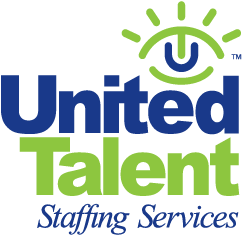The working world is changing far quicker than many could have anticipated. Projections for what the future of work will look like suggest that upskilling has gone beyond headlining trends to becoming a strategic imperative. Industries ranging from manufacturing and logistics to administrative services are experiencing rapid shifts in skill requirements, making upskilling a need now rather than later.
Transformation in the Workplace
With job roles continuing to evolve with progressing technology and increasing complexity, the need for professional development is well known—and as tech like artificial intelligence (AI) advances, there has been no better time to understand why upskilling is a must. In manufacturing, for instance, employees are transitioning from manual operations to controlling automated systems. Similarly, in logistics, expertise in digital tools like IBM software for supply chain management is becoming indispensable. Having this in mind, continuing education ensures that employees meet these growing demands while achieving operational excellence.
Preparing for Future Shifts
The World Economic Forum’s Future of Jobs Report 2023 highlights an important forecast: 44% of workers will face significant skill disruptions within the next five years, with 6 in 10 workers estimated to need substantial training before 2027. This projection exposes the urgent need to implement continuous learning and development, especially in sectors facing rapid technological changes.
Strategic Implementation
Implementing an effective upskilling strategy involves several key actions and activities tailored to the needs of various sectors:
- Skill Gap Analysis: Systematically assess the current skill levels within the organization and compare them against future needs to identify gaps. Leverage performance data, employee feedback, and industry trend analyses to pinpoint areas where training is most needed.
- Tailored Training Initiatives: Develop sector-specific training programs. For example, in manufacturing, focus on advanced machine operations and quality control systems; in logistics, emphasize training in software like ERP systems and analytics tools; in construction, update safety protocols and green building techniques. Ensure these programs are accessible in formats that meet the employees’ needs, such as on-site workshops, online courses, or hands-on simulation training.
- Online-Based Learning: Utilize mobile learning platforms like edX and Coursera that allow employees to learn at their own pace and on their own time, enhancing learning flexibility and retention.
- Mentorship Programs: Establish mentorship initiatives where more experienced employees guide newer or less skilled team members. Encourage peer learning sessions where employees share insights and best practices with one another. This is especially critical in manufacturing positions where hands-on experience is non-negotiable.
ROI of Upskilling
A recent Forbes article sheds light on the tangible and intangible returns of upskilling. Quantitatively, it results in higher salaries, improved job security, and greater employability. Qualitatively, upskilling enhances job satisfaction, develops a culture of ongoing improvement, and builds a workforce that is adaptable to emerging changes in their roles, making it an invaluable investment in the dynamic environment of our modern era.
Future-Proof Your Business with United Talent
As industries continue to evolve at a nonstop pace, the need for upskilling is clear. Staying competitive requires a workforce that can grow with changing demands. At United Talent Staffing, we specialize in helping you build and maintain a skilled team. Our full-service staffing solutions ensure you have the Right People Right Now, ready for today’s tasks and tomorrow’s opportunities. Contact us today to enhance your workforce and keep your business ahead of the curve.

